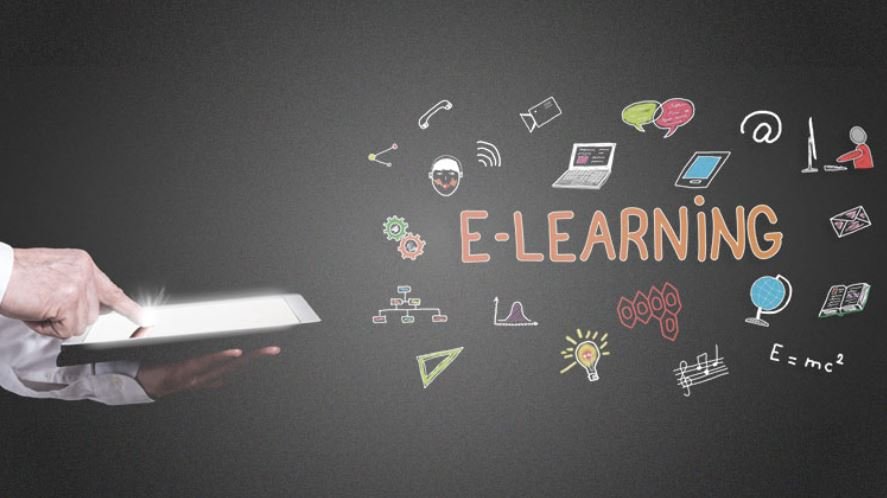Education
The eLearning Content Development Process in 8 Steps

It’s no wonder that firms are trying to take advantage of the numerous advantages of eLearning platforms, and learning via eLearning has become a vital element of today’s corporate culture.
However, as more companies attempt to include eLearning into their corporate culture, the requirement to generate eLearning material fast is becoming more vital.
[lwptoc]
-
Determine the Purpose of Your Elearning Content.
Goals for both internal and external elements should be defined by an eLearning creator. Internal factors are those that are concerned with the growth of learning itself, while external variables are those that are concerned with business demands. Defining these objectives is an essential element of any successful eLearning content production process. If you don’t know what you’re attempting to accomplish, your material will most certainly suffer as a consequence.
-
Gather data for the creation of eLearning material.
The next stage in developing eLearning material is to gather data. This entails determining what your users desire, how they learn, and their work function.
For example, if you were creating a training course for an HR department, it may be a good idea to have someone from that department meet with learners and ask them questions about how they would want things presented (brief videos or slideshows) and what they are suffering within their employment. You should also examine performance indicators to determine which areas need the most training. With education software development services, you may achieve your corporate objectives quicker while also making education more effective and entertaining.
-
Create a storyboard for the production of your eLearning material.
Begin with a storyboard that includes all of your multimedia components. Most of them should have already been created for your learning aim, but it’s crucial to go through them and decide which ones you’ll employ. Include images, video and audio clips, animation, and other elements as suitable for each stage of the eLearning content production process. It might be tempting to include more material than is required, but keep flow and impact in mind – you want learners to complete your course as soon as possible.
-
Incorporate Sound Effects and Music Into Your eLearning Content Creation
Sound effects and music are essential for making learning more interesting for students. Consider viewing a movie with no sound effects or music. Isn’t it going to be tedious?
Including sound effects and music in your eLearning course may make it more enjoyable, resulting in greater outcomes.
If there is no purpose to include sound effects or music, leave them out. It’s as simple as that. And don’t worry if you’re not yet particularly adept at generating audio/visuals—there are lots of fantastic tools available to assist you.

-
Incorporate Animations Into Your Elearning Content
Animations are more than simply a technique to entertain your audience; they are also strong tools for creating a more engaging experience. They’re also a great technique to engage students and keep them focused on important issues.
Show someone with a cramp or strain, for example, if you’re talking about the unpleasant consequences of exercise. Include cartoons depicting how specific vitamins favorably influence healthy cells or systems in our body if you wish to illustrate their advantages.
-
Make Your Elearning Content More Interactive And Actionable
Interactivity is the finest approach to make your eLearning course more entertaining. This ensures that learners are not bored while taking your course. One simple method is to create a quiz or game after each lesson. They are forced to review what they have learned while also improving their abilities. You may also ask them how they would handle specific scenarios that can arise in real life, which challenges kids to think and learn more than just following text-based instructions.
-
Use testing to validate your eLearning courses.
Before you begin developing an e-learning course, you should do some preliminary testing on your concept. You may ask some coworkers or clients whether they’d be interested in a course on a similar subject to what you’re preparing. If they are, that’s fantastic! Prepare to enter the world of content creation.
-
Polish and Disseminate Your Elearning Content
Before you publish anything for the eLearning content production process, consider if it is beneficial, whether it has any entertainment value, or if you can give users clear and concrete methods for fulfilling their objectives. If you can say yes to at least one of these questions, make sure everything is short, simple to read, and worth reading. Anything less would be a complete waste of time and energy.
Check out: Why is Online Learning Better?
-

 Entertainment4 weeks ago
Entertainment4 weeks ago123Movies Alternatives: 13 Best Streaming Sites in 2026
-

 Entertainment1 month ago
Entertainment1 month ago13 Free FMovies Alternatives to Watch Movies Online in 2026
-

 Entertainment1 month ago
Entertainment1 month ago13 Flixtor Alternatives to Stream Free Movies [2026]
-

 Entertainment1 month ago
Entertainment1 month agoGoMovies is Down? Here are the 11 Best Alternatives





